
Ten Things You Probably Didn't Know About The Vanderbilts
TUESDAY 06 NOV, 2018The Vanderbilts were one of the most formidably wealthy families in America up until the mid-20th century, their fortune made on their shipping and railroad empire. There's a lot to know about this infamous family, so the author of A WELL BEHAVED WOMAN by Therese Anne Fowler has expertly picked 10 fascinating facts for us.
#1 When it came to building his fortune, Cornelius “Commodore” Vanderbilt, the family patriarch, was more of an opportunist than a visionary. Others invented and established the use of steamships and railroads; his talent was for seeing how to maximize their uses. Src: https://www.american-rails.com/cornelius-vanderbilt.html
Src: https://www.american-rails.com/cornelius-vanderbilt.html
#2 The family, before Alva Smith’s involvement, were considered nouveau riche upstarts, because although the family had been in Staten Island since the 1600s, the Commodore was the first Vanderbilt to live in Manhattan. His daughters and sons wanted to be accepted into the top circle of New York society but had been unable to get in. Alva’s ingenuity and willingness to take risks to make social inroads is what made all the difference.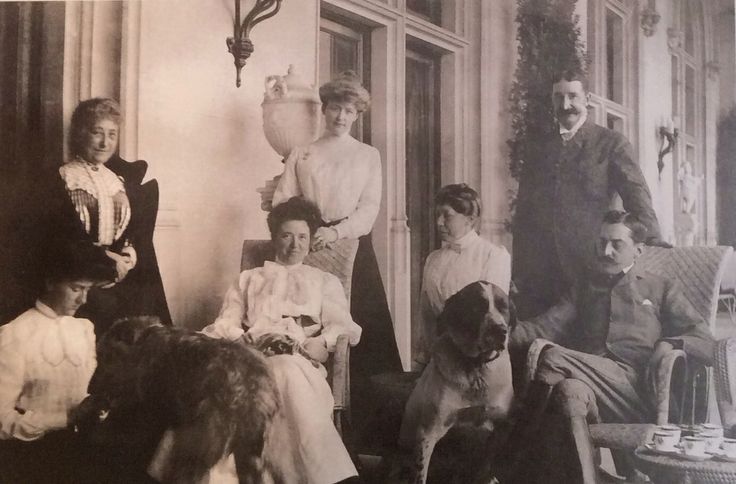 Src: https://kihm2.wordpress.com/2014/04/15/tea-with-the-vanderbilts/
Src: https://kihm2.wordpress.com/2014/04/15/tea-with-the-vanderbilts/
#3 After the Commodore’s death, the Vanderbilt men were mainly stewards of the money, failing to innovate or diversify their railroad “empire” and creating a generation of playboys who spent lavishly on entertainments and horses and yachts and real estate. With each successive generation, there was less and less money to go around. The only wealthy descendants now are those who’ve made their own fortunes, including fashion designer Gloria Vanderbilt and her son, CNN’s Anderson Cooper.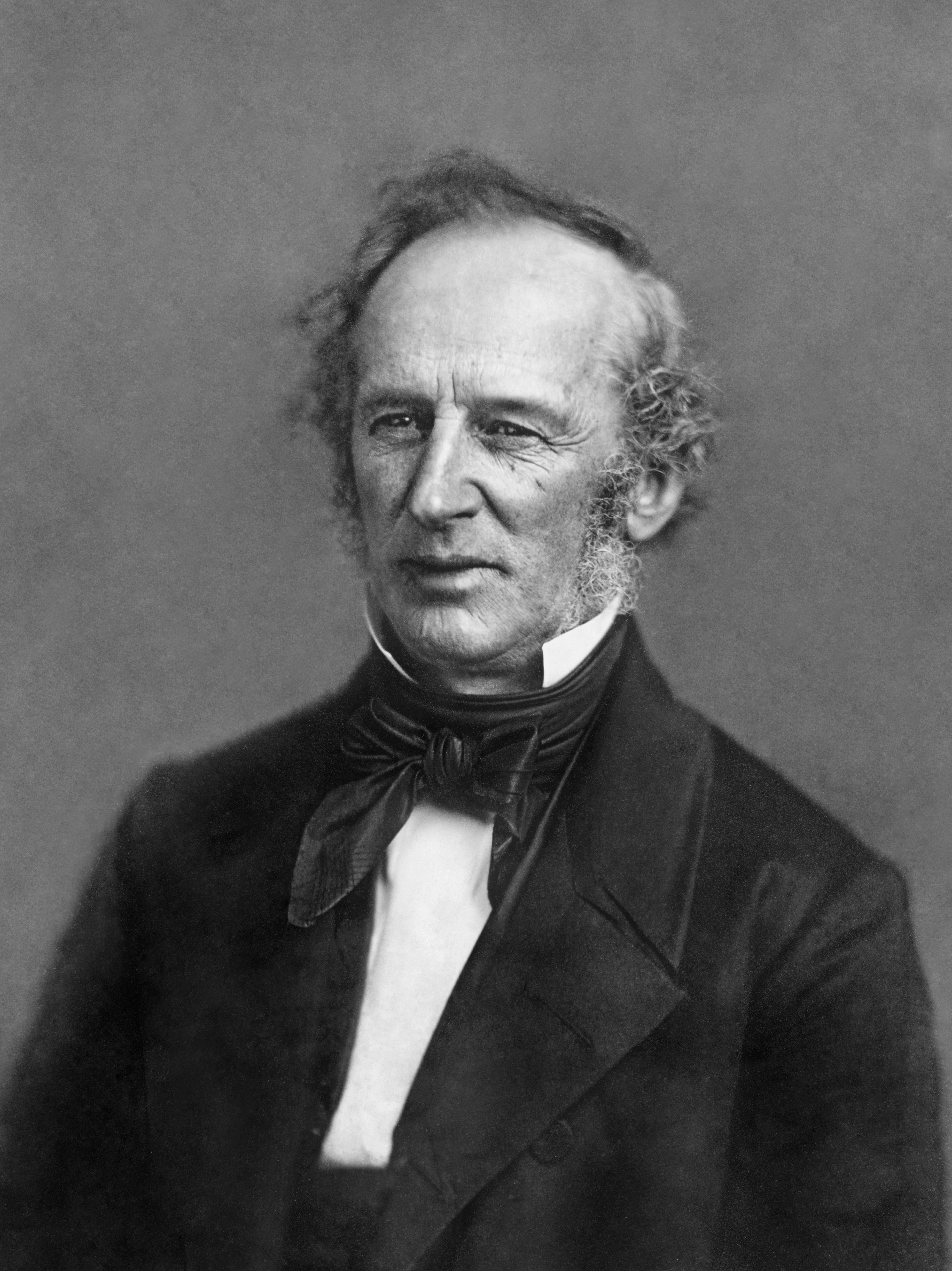 Src: https://upload.wikimedia.org/wikipedia/commons/5/57/Cornelius_Vanderbilt_Daguerrotype2.jpg
Src: https://upload.wikimedia.org/wikipedia/commons/5/57/Cornelius_Vanderbilt_Daguerrotype2.jpg
#4 Alva would have been an architect if women of her time and class could have pursued professions. Her lifelong passion and occupation was designing and decorating great homes. When she got involved in the women’s suffrage movement, she opened some of those homes to the organizations as meeting places and education/skills-training centres.Src: https://bostoncommon-magazine.com/alva-vanderbilt
#5 The portion of New York City’s Fifth Avenue that came to be known as “Vanderbilt Row,” due to the many mansions they built there, was begun on Alva’s initiative. Unfortunately, all the mansions were taken down as retail development replaced residential areas all along Fifth Avenue.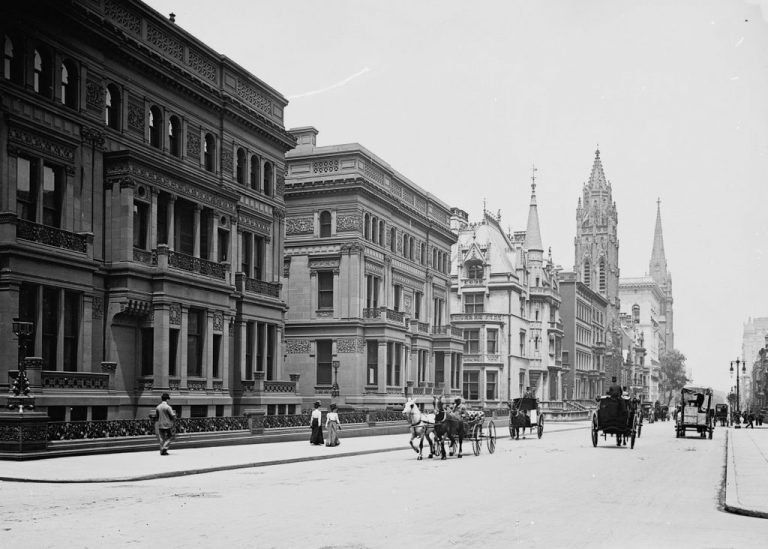 Src: http://lostnewengland.com/2016/06/vanderbilt-row-new-york-city/
Src: http://lostnewengland.com/2016/06/vanderbilt-row-new-york-city/
#6 Alva’s niece, Gertrude Vanderbilt Whitney, became a renowned sculptor and later founded the Whitney Museum of American Art. Gertrude, like Alva, was somewhat of a misfit in her family and upper class society. Unlike Alva, though, Gertrude never really reconciled her warring impulses. Src: https://whitney.org/
Src: https://whitney.org/
#7 Alva’s sister-in-law Lila Vanderbilt Webb built Vermont’s Shelburne Farms, a model of sustainability and currently also a nonprofit educational center.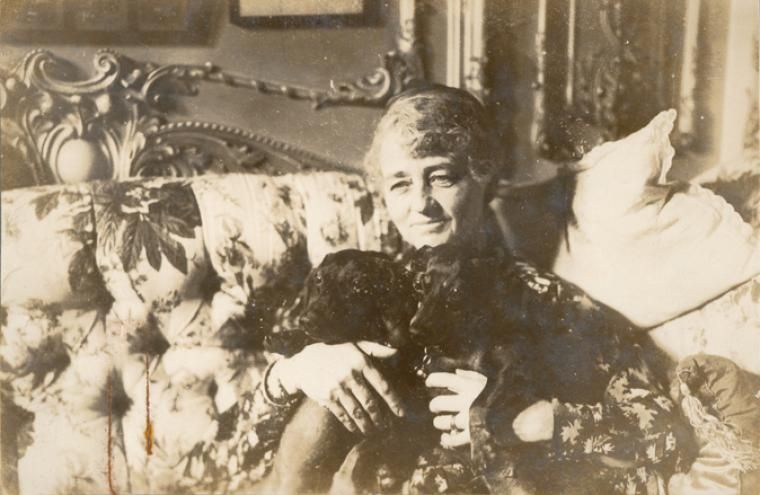 Src: ttps://www.pinterest.com.au/nypl/?
Src: ttps://www.pinterest.com.au/nypl/?
#8 Unlike most upper-class women, Alva was politically progressive. She became a women’s suffrage activist and later advocated for equal rights for all citizens. She was one of the only women in the suffrage movement who made efforts to include African American women.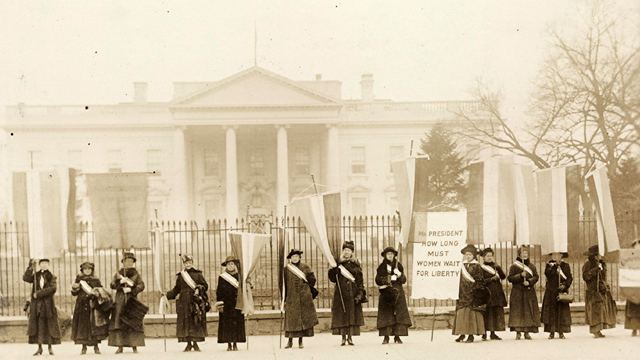 Src: https://www.alabamanewscenter.com/2018/01/17/day-alabama-history-jan-17/
Src: https://www.alabamanewscenter.com/2018/01/17/day-alabama-history-jan-17/
#9 Frustrated by the slow pace for women’s suffrage and limited services for women, Alva founded her Political Equality Association, which provided education, health, and hygiene resources for women of all races and classes. The P.E.A. hosted speakers on subjects of import to working women especially, including job training, childcare, and reproductive health.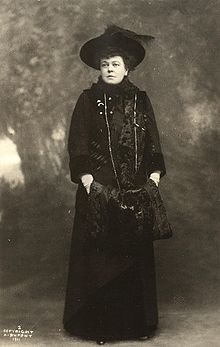 Src: https://en.wikipedia.org/wiki/Alva_Belmont
Src: https://en.wikipedia.org/wiki/Alva_Belmont
#10 Alva’s reputation is that she was a pushy, selfish, materialistic social climber—but she has been maligned the way strong women so often are. Seeing and reframing Alva through a lens that assigns the same favourable adjectives to her (e.g. strong, decisive, passionate) that a man of similar accomplishments would receive, and recognizing the context around all the things she did in her life, gives us a far truer picture of the woman she was.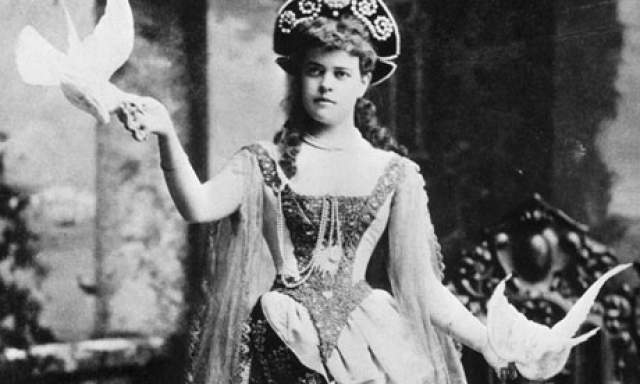 Src: https://www.pinterest.com.au/lisamarks1/alva-vanderbilt-belmont/?lp=true
Src: https://www.pinterest.com.au/lisamarks1/alva-vanderbilt-belmont/?lp=true
Related news
 loading...
loading...
Six facts you may not know about Henry VIII's wife - Anne of Cleves
How much do you know about the princess whose portrait seduced Henry VIII?
 loading...
loading...
Who was the real Lady Chatterley?
A scandalous woman. A force of nature. Who was the real Lady Chatterley? Author of FRIEDA, Annabel Abbs, sheds some light.
.png?auto=compress&w=440&h=247&fit=crop&fm=jpg) loading...
loading...
<3 Books with Heart loves Book Lovers Day <3
To celebrate Book Lovers Day on August 9, we asked our Hearties to tell us their favourite read of 2018 so far, and the book they can’t wait to get their hands on next.
 loading...
loading...
Kayte Nunn's 5 Favourite Gardens
The author of THE BOTANIST'S DAUGHTER shares her Top 5 favourite gardens around the world.
 loading...
loading...
Natasha Lester's Top 5 Winter Fashion Essentials
Natasha Lester shares her 5 winter-ready fashion essentials from another era.


.jpg?auto=compress&w=150)
.png?auto=compress&w=150&h=60&fit=crop&fm=jpg)
.png?auto=compress&w=150&h=60&fit=crop&fm=jpg)




